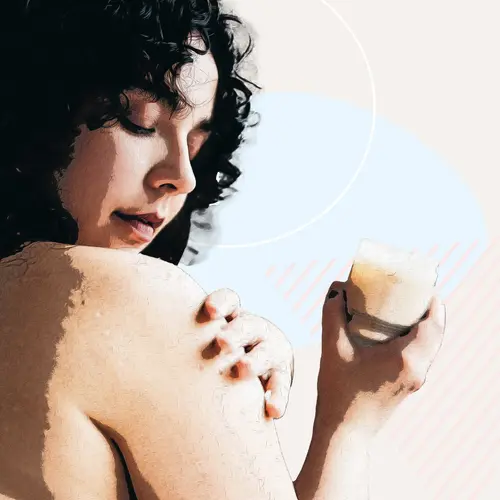No one likes dry skin and hair. Not only can dry skin cause discomfort, but it can worsen conditions like eczema or put you at risk for skin infections. Dry hair feels brittle and straw-like, and the damage causes hair to lose its natural shine.
For dry skin and hair, moisture loss is often the cause. One way you can help your skin and hair collect more moisture is to use products with humectants.
What are Humectants?
Humectants are substances that attract water from the air or from deeper in the skin. They come in three main forms: natural or unchanged, naturally derived, and synthetic. You can find humectants mainly in skin care and hair care products, but many industries use them. They’re often added to food products as anti-caking agents. They can also be found in some medications, and agricultural products.
You can expect to see humectants in personal care products such as:
- Shampoo
- Conditioner
- Body lotion
- Skin cream and body butter
- Face cleanser
- Lip balm
- Eye cream
- Cosmetics
- And more
How Humectants Work
All humectants bind with water, but some of them have an additional role. Some humectants first break down the dead skin cells clogging up your skin's surface.
These dead skin cells drop off in a process called cell turnover or desquamation. But when the water content in the top layer of skin — called the stratum corneum — falls below 10%, these dead cells build up and lead to dry, rough-textured skin.
Once the humectants loosen the dead cells, they draw moisture from deeper layers of skin.
Humectants, Occlusives, and Emollients
Occlusives. These substances create a barrier on the surface of dry skin or hair to lock in moisture.
Emollients. These substances smooth the skin’s surface to create a softer texture, filling gaps and cracks that make your skin feel rough. They also help repair and strengthen the skin’s natural protective barrier.
Some humectants are also emollients, just as some humectants are also occlusives.
For humectants to do their job, they need to stay in your skin and hair. That’s why most products combine humectants with occlusives to make sure that moisture doesn’t escape into the air. Adding emollients to the formula creates a smooth surface.
Types of Humectants
Although there are various examples of humectants, some are more commonly used. The most common include
Hyaluronic acid. This is a molecule found naturally in the body, although the body makes less of it as you age. That’s one of the factors that leads to dry, aging skin. Most hyaluronic acid for skincare is made in a lab.
Glycerin. Also called glycerine or glycerol, glycerin is a clear substance that occurs naturally in animal and plant tissue, including that of humans. A lot of the glycerin in makeup is made from soybean and sugarcane. Glycerin is one of the most effective humectants, and it also helps keep your skin barrier strong.
Alpha hydroxy acids (AHA). Alpha hydroxy acids like glycolic acid, lactic acid, and citric acid are naturally derived acids from fruit and milk sugars. Along with drawing in water, AHAs help the body get rid of dead skin cells. Glycolic acid comes from sugar cane, lactic acid from milk, and citric acid from citrus fruits.
Aloe vera. Aloe vera gel and juice come from the aloe vera plant help smooth the surface of your skin and hair. In this way, aloe vera can act as a humectant and an emollient.
Other humectants in personal care products include:
- Honey
- Seaweed
- Propylene glycol
- Sugar alcohols like xylitol and sorbitol
- Molasses
- Urea
- Peptides and amino acids
- Panthenol (Vitamin B5)
Products That Contain Humectants
When choosing skin care and hair care products, take your time. Some moisturizers work better for oily skin, while others help dry, sensitive, or inflamed skin. Sometimes ingredients can clog pores, which may not be the best choice if you have acne-prone skin.
Humectants alone may actually add to dryness because they can draw water from deeper layers of the skin. Without an occlusive to seal it in, this moisture can evaporate and leave your skin drier than before. That's why these types of ingredients work best together. Be sure to use a moisturizer that doesn’t depend on humectants only.
Speak with your doctor or a dermatologist about the condition of your skin or hair if you can't find relief from dry or oily skin, or you’re worried about underlying health issues. Sometimes, health issues could be the cause of dry skin and rashes, dry hair, or even hair loss.

